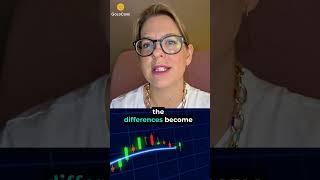| In this episode of the Cashflow Academy podcast, host Andy Tanner sits down with Dr. Sean Vanatta, author of "Plastic Capitalism: Banks, Credit Cards, and the End of Financial Control", to explore the evolution of credit cards, the rising consumer debt crisis, and the financial strategies needed to manage and leverage debt effectively. This episode provides valuable insights into both the history and modern complexities of credit cards, making it a must-listen for consumers and investors alike. The History of Credit Cards The conversation begins with the origins of credit cards in the early 20th century, when department stores like Macy’s offered charge accounts to affluent customers. By the 1950s, banks such as Bank of America expanded the credit card market, mailing unsolicited cards to consumers and revolutionizing the way people managed credit. This rapid growth led to regulatory challenges, including concerns over fraud and interest rate caps. The Modern Credit Card Landscape Dr. Vanatta highlights how today’s credit card landscape is marked by unprecedented levels of consumer debt. Despite economic crises like the 2008 financial crash and the COVID-19 pandemic, credit card debt continues to rise, with interest rates now averaging 20-30%. The increasing reliance on credit cards for everyday purchases reflects both the convenience and the financial strain they impose on consumers. Managing Debt and Leveraging Credit For individuals struggling with credit card debt, Dr. Vanatta and Andy emphasize the importance of shifting spending habits and using debt strategically. Rather than simply paying off debt, leveraging it to invest in high-yield assets can be a more effective financial strategy. This approach can help reduce financial liabilities while also growing wealth. Investment Opportunities in the Credit Market From an investor’s perspective, the credit card industry offers lucrative opportunities due to the high interest rates charged to consumers. However, with these opportunities come risks, such as potential default rates and economic fluctuations. Understanding the historical context and current trends is crucial for investors looking to balance profitability with risk management. FREE Training with Andy Tanner: https://bit.ly/3U3HAPY 00:00 Introduction 00:31 Guest Introduction: Dr. Sean Venata 01:09 Sean's Background and Motivation 05:26 The History of Credit Cards 10:51 The Rise of Bank Credit Cards 17:25 Modern Credit Card Debt 28:47 Investing Insights and Risks 44:23 Conclusion and Final Thoughts ---- Disclaimer: The information provided in this video is for educational and informational purposes only. It should not be considered as financial advice or a recommendation to buy or sell any financial instrument or engage in any financial activity. The content presented here is based on the speaker's personal opinions and research, which may not always be accurate or up-to-date. Financial markets and investments carry inherent risks, and individuals should conduct their own research and seek professional advice before making any financial decisions. |
Tags: Featured,newsletter

























21 pings
Skip to comment form ↓